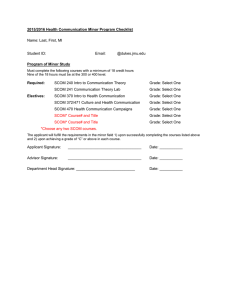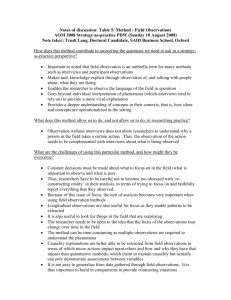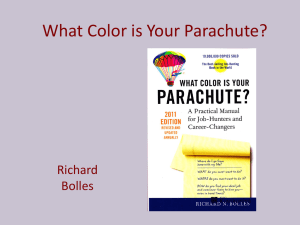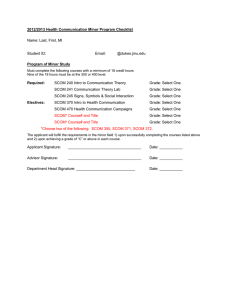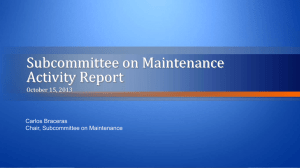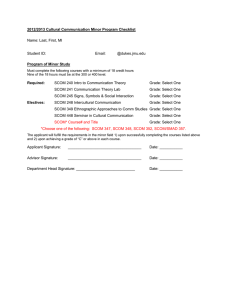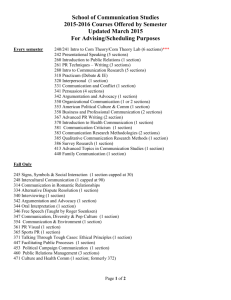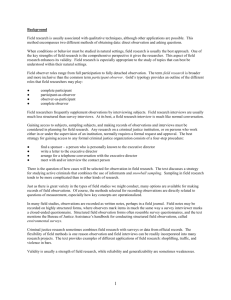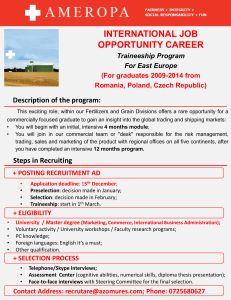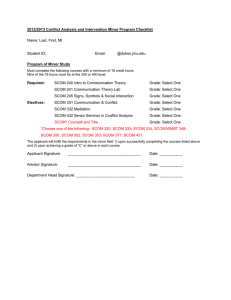SCOM 450 assignment
advertisement
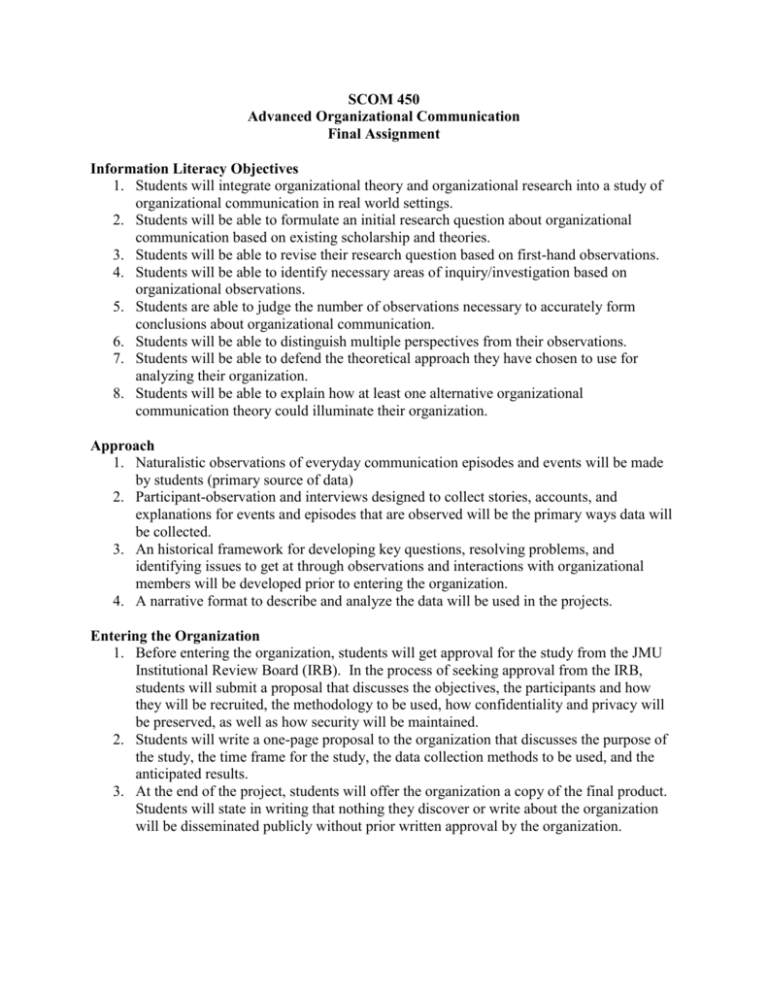
SCOM 450 Advanced Organizational Communication Final Assignment Information Literacy Objectives 1. Students will integrate organizational theory and organizational research into a study of organizational communication in real world settings. 2. Students will be able to formulate an initial research question about organizational communication based on existing scholarship and theories. 3. Students will be able to revise their research question based on first-hand observations. 4. Students will be able to identify necessary areas of inquiry/investigation based on organizational observations. 5. Students are able to judge the number of observations necessary to accurately form conclusions about organizational communication. 6. Students will be able to distinguish multiple perspectives from their observations. 7. Students will be able to defend the theoretical approach they have chosen to use for analyzing their organization. 8. Students will be able to explain how at least one alternative organizational communication theory could illuminate their organization. Approach 1. Naturalistic observations of everyday communication episodes and events will be made by students (primary source of data) 2. Participant-observation and interviews designed to collect stories, accounts, and explanations for events and episodes that are observed will be the primary ways data will be collected. 3. An historical framework for developing key questions, resolving problems, and identifying issues to get at through observations and interactions with organizational members will be developed prior to entering the organization. 4. A narrative format to describe and analyze the data will be used in the projects. Entering the Organization 1. Before entering the organization, students will get approval for the study from the JMU Institutional Review Board (IRB). In the process of seeking approval from the IRB, students will submit a proposal that discusses the objectives, the participants and how they will be recruited, the methodology to be used, how confidentiality and privacy will be preserved, as well as how security will be maintained. 2. Students will write a one-page proposal to the organization that discusses the purpose of the study, the time frame for the study, the data collection methods to be used, and the anticipated results. 3. At the end of the project, students will offer the organization a copy of the final product. Students will state in writing that nothing they discover or write about the organization will be disseminated publicly without prior written approval by the organization. Procedures 1. Students will develop an initial research question that will be grounded in the current research literature. All SCOM majors will have developed communication research skills in SCOM 280 prior to taking this course. 2. Students will locate and evaluate literature for its relevance to the research question (via libraries, databases, community resources, special interest organizations, the media, and/or the Internet). 3. After reading the current literature, students will be able to identify what are the questions that concern scholars and professionals in the communication field. Students will then adapt these questions to the organization under study and the purpose of the project. 4. At this point, students will enter the organization and begin to develop relationships with organization members, make observations, and interview members in order to verify observations. The purpose of the observations and interviews is in order to understand what people in this organization say and do. 5. Students will be instructed to write down everything they see and hear and to tape record (with permission) interviews. Recorded interviews should then be transcribed. 6. As the observations are made and interviews are conducted, students will be required to reflect on the meanings these people create at work. 7. The purpose of reflection is to help students begin to make connections between observations, conversations, and interviews with theoretical concepts learned in SCOM 350. Based on these reflections, what kind of organization is this? What evidence do they have to support their claims? 8. Documentation will be important. What stories do these people tell? Who are the heroes and heroines? What kinds of rituals and ceremonies take place? Why do they take place? Why are these things important to people in this organization? What are the common metaphors that are used in this organization? Form 1. 2. 3. 4. 5. Abstract Introduction Body Conclusion References Assessment 1. Research question 2. Literature review (adapt rubric for literature review) 3. Reflection journal entries (what, so what, now what) 4. Final product (adapt rubric for writing feedback form)
